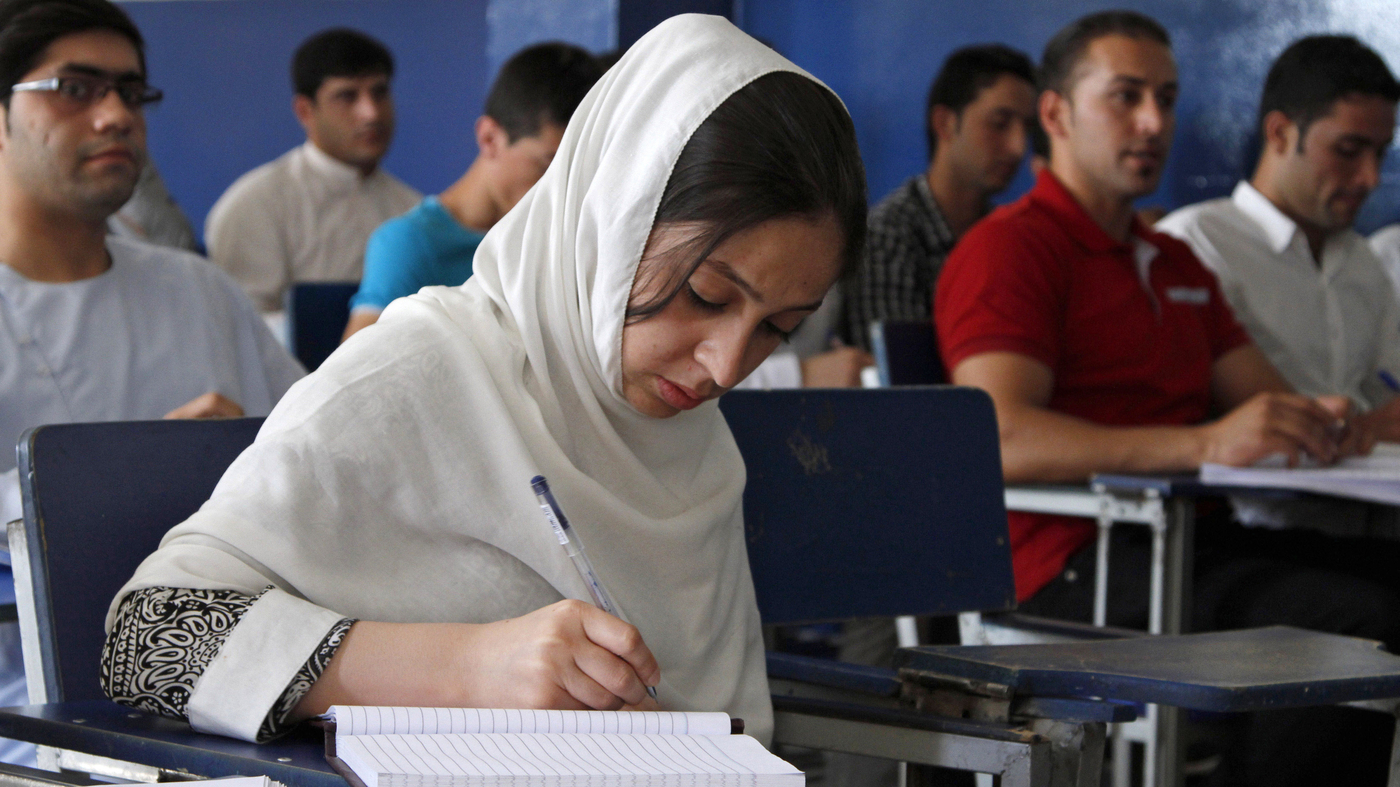The Taliban’s ban on women and girls seeking education: “It’s a crime,” a student told Nangarhar University
Despite being banned from classrooms by the Taliban,Afghan girls took their high school graduation exams a few weeks ago.
Despite initially promising a more moderate rule respecting rights for women’s and minorities, the Taliban have widely implemented their strict interpretation of Islamic law, or Sharia.
The Taliban were ousted in 2001 by a U.S.-led coalition for harboring al-Qaida leader Osama bin Laden and returned to power after America’s chaotic departure last year.
After the government meeting, the decision was made. A letter shared by the spokesman for the Ministry of Higher Education, Ziaullah Hashmi, told private and public universities to implement the ban as soon as possible and to inform the ministry once the ban is in place.
Western diplomats believe that the Taliban’s ban on women and girls seeking education is an impediment to discussion about international recognition.
“I can’t fulfill my dreams, my hopes. Everything is disappearing before my eyes and I can’t do anything about it,” said a third-year journalism and communication student at Nangarhar University. She did not want to be identified for fear of reprisals.
Is being a girl a crime? I wish that didn’t happen, I would have been a girl. “My father had dreams for me, that his daughter would become a talented journalist in the future. That is now destroyed. So, you tell me, how will a person feel in this situation?”
“God willing, I will continue my studies in any way. I’m going to start my studies online. She said that she would leave the country and go to another country if it didn’t work.
“It’s difficult to imagine how a country can develop, can deal with all of the challenges that it has, without the active participation of women and the education,” Guterres said.
The Taliban’s Last Hope: The Last Chance for Female Students to Go Back to School, and Why the Taliban Can’t Be Accepted
Robert Wood said that the Taliban can’t be accepted as a member of the international community until they respect the rights of Afghans.
Afghanistan’s U.N. seat is still held by the previous government led by former President Ashraf Ghani, despite the Taliban’s request to represent the country at the United Nations, which was recently deferred again.
The announcement at the UN is a violation of most fundamental and universal human rights for all of mankind, says the charge d’affairs of Afghanistan.
The spokesman for higher education confirmed the important news to NPR and then sent out a follow up announcement with the words ” important news”.
“What news could be worse than this?” said Zahra in a voice message to NPR, left in response to a question about how she felt. She requested her family name not be used, fearing she’d be identified by Taliban officials. I have been shaking with anger. I am unable to cry.
“The Taliban took our last hope from us. The female students had their last exam tomorrow,” she said. “But the Taliban closed the gates of university today.”
The international community had been promised that the ban would only last for a limited time, but in March the group decided to not allow most girls to go back to school. Many female students came back to class when their teachers kicked them out because of the sudden decision. Many students broke down in tears.
Taliban officials have since given an array of pretexts for the continued ban, from wanting to review the girls’ curriculum to discussions over their uniforms.
But because of a quirk in the decision-making process, women were still allowed to attend university, albeit with strict conditions: They had to cover their hair and faces at all times, wear long, loose black robes and abide by strict gender segregation. It is not clear how many women were still attending university.
A Gender Apartheid: The Implications of the Taliban’s Move on the Future of Higher Education and Women’s Studies in Afghanistan
According to him, certain Taliban officials are hoping the rumor will bring international pressure on the leadership to reconsider the ban.
“I genuinely think that the man in charge thinks that this is what an Islamic society ought to look like,” Baheer says, referring to Akhundzada. He has a specific view of where women and young girls should be in their homes. So I guess for all intents and purposes, this is a gender apartheid. This is not short of that.
The Taliban’s move quickly triggered reactions from the international community, which has refused to recognize the Islamic group’s takeover of Afghanistan.
For women in Afghanistan, the dream of ever continuing their studies is something that seems forever further away, and for the few that had pursued higher education, so is it.
She said that everything is over for her. I wanted to be an engineer and a good person in my community, as well as be educated and serve people. I can’t do that anymore. Life is meaningless for me.
